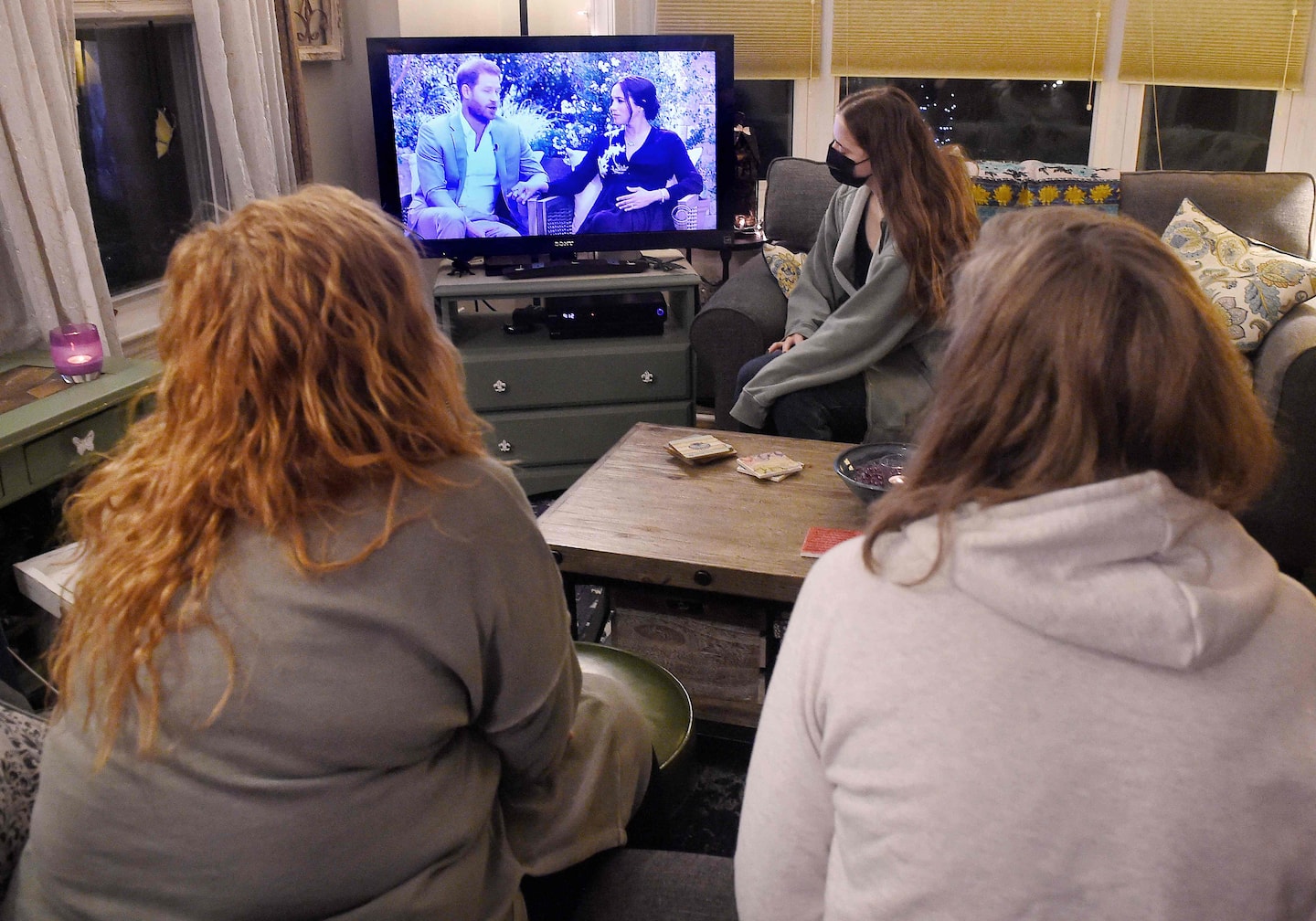Harry and Meghan’s ‘modern fairy tale’ was just set on fire

Of course, the act of reinventing fairy tales is a sign of how much power is still vested in them: No one renovates a house they plan to tear down. But if a fairy-tale romance is now a marriage of equal partners dedicated to their mutual self-actualization, there are few organizations more poorly set up to deliver on that modern marital dream than a monarchy.
As Robert Lacey detailed in his recent book “Battle of Brothers: William, Harry and the Inside Story of a Family in Tumult,” Harry has long been in the unenviable role not just of “spare” to his older brother the “heir,” but also of lightning rod. Even though both brothers are beloved, not least for their suffering after their mother’s death, William would always be the priority simply because he was the future king.
In this updated riff on the old story, it was Harry who was the captive and Meghan, in the style of a hundred feminist reinventions, who was the champion meant to free him. It was a point she underscored early in the special, when she told Winfrey, “I just love rescuing.” While Meghan was talking about both her dog Guy and her rescue chickens, she might well have been talking about her husband, too, who has been increasingly open about his struggles with his mental health. Theirs wasn’t merely supposed to be a gender-flipped fairy tale, but, paradoxically, one that was both revolutionary and institutionalist: The liberated, independent American buoys the struggling prince, while integrating and revitalizing a slowly evolving monarchy.
It didn’t turn out that way. And in both Meghan and Harry’s version of events, as related to Winfrey, the royal family and the bureaucracy around it didn’t even have a sense of how to make this position survivable, both for the man born into it and the woman who married into it.
Both said Harry fielded questions and comments from within the royal family about how dark his son’s skin might be. Meghan said the couple felt the decision to deny Archie a royal title, a choice she denied she and her husband made on his behalf, was a way of excluding him from protective security, even in the face of racist threats to the family. Harry said his father, Prince Charles, stopped taking his calls at one point. And Meghan said she was told she could not seek inpatient mental health treatment when she became suicidal. Far from rescuing her husband, Meghan said she was reduced to writing letters to members of Harry’s family, whom she did not name, asking, “Please keep him safe” after Harry lost the security he’d been entitled to since birth.
Is it any wonder, then, that Harry eventually discovered that what he wanted was not to transform the institution that he grew up in, but to escape it? It can be pretty grim inside the traditional versions of these stories, for men as well as women — and it turns out that’s true in the modern revisions as well.
Harry has said repeatedly that he didn’t want to repeat the history that ended with his mother dying after a car crash in a tunnel in Paris after a chaotic evening out pursued by the paparazzi. But like Diana, Harry and Meghan chose an incendiary interview as their means of extricating themselves from a fairy tale gone rancid.
Diana’s death transformed her into a fantastical figure: an ageless martyr, gone at the height of her beauty and the dawn of her independence. For Harry and Meghan, the story Meghan described as “Greater than any fairy tale you’ve ever read” is still beginning. Alive, they still have the ability to err and disappoint, to be human and messy in all the ways that run counter to myth-making.
But for all Winfrey — and Harry and Meghan themselves — couldn’t quite let the fairy tale idea go, the most damning line from the interview might have been Harry’s withering depiction of his father and his brother as not kings in waiting, but as captives.
“They don’t get to leave,” he said. “And I have huge compassion for that.”
Read more:






